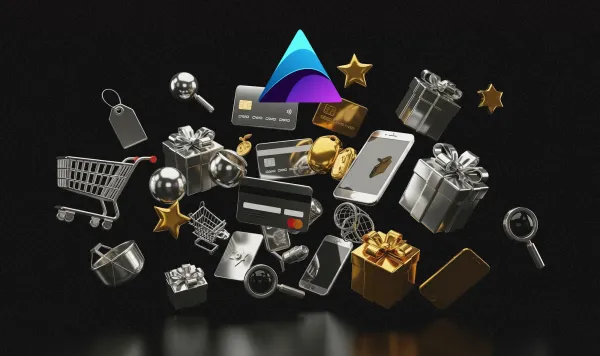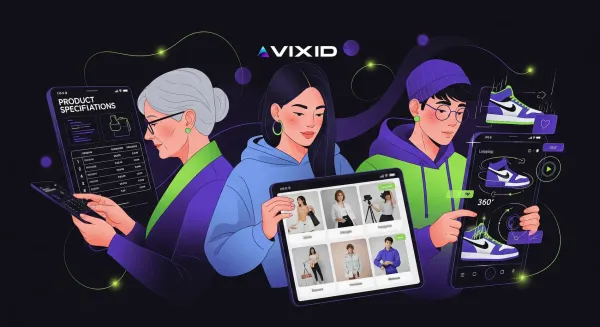ChatGPT's Persistent Storage: Why Everyone's Freaking Out (And What You Actually Need to Know)

You're casually chatting with ChatGPT about your weird dreams or asking for recipe suggestions, when suddenly you realize—wait, is this thing remembering everything I tell it? And more importantly, where the heck is all that data going?
If you've had this mini panic attack, welcome to the club. You're definitely not alone, and honestly? Your concerns are totally valid.
The Great ChatGPT Storage Freakout of 2024-2025
Let me paint you a picture of what's been happening in the digital world lately. Social media is buzzing, Reddit threads are exploding, and everyone from your tech-savvy neighbor to your privacy-conscious aunt is asking the same question: "What exactly is ChatGPT doing with all my conversations?"
One Reddit user put it bluntly: "dont forget that ALL of the data is stored forever, is being used to profile you, and could plausibly be leveraged against you in the future." Yikes, right? That's the kind of comment that makes you want to immediately delete your entire chat history.
But here's the thing—while the fear is real, the full story is a bit more nuanced than the panic-inducing headlines suggest.
What's Really Going On Under the Hood?
Let's break down what ChatGPT actually stores, because the devil (as always) is in the details.
The Data Collection Reality Check
ChatGPT's data collection practices are extensive, capturing both direct inputs and metadata: Every query, instruction, or conversation with ChatGPT is stored indefinitely unless deleted by the user. This includes:
- Your conversations: Every single thing you type and every response you get
- Account info: Name, email, the usual suspects
- Technical metadata: Your IP address, device type, browser info
- Usage patterns: When you use it, how long your sessions are
- Files you upload: Documents, images, anything you share
And here's where it gets interesting (and a little scary): If you use ChatGPT's Operator AI agent feature, it takes screenshots of your browsing activity. Even if you delete these screenshots, they remain on OpenAI's servers for 90 days.
Why People Are Actually Worried (And It's Not Just Paranoia)
The "Forever" Problem
The "indefinite" retention is what concerns me most. In my experience developing AI systems, indefinite usually means forever unless regulations force deletion.
Think about it: every embarrassing question, every personal detail, every work-related query you've ever asked—it's all sitting there. Forever. Or at least until regulations force them to delete it.
The Human Reviewer Situation
Here's something that makes a lot of people uncomfortable: OpenAI mentions in their FAQs that human reviewers may occasionally view conversations to improve model quality.
Imagine some OpenAI employee reading your 2 AM existential crisis conversation or your attempts to get ChatGPT to help you write a breakup text. Not exactly the audience you had in mind, right?
The Training Data Dilemma
Your chat data is added to OpenAI's training data and used in hopes of making ChatGPT more accurate and usable. This means your personal conversations could literally become part of the AI's "brain" and influence how it responds to other users.

The Privacy Experts Are Raising Red Flags Too
This isn't just regular folks being paranoid. ChatGPT's data handling practices clash with major privacy regulations worldwide. The European Union's General Data Protection Regulation (GDPR) requires companies to follow strict data protection rules. ChatGPT violates several key principles: The indefinite retention of user data is a major red flag.
Even more concerning? A 2024 EU audit found that 63% of ChatGPT user data contained personally identifiable information (PII), with only 22% of users aware of disable settings.
So yeah, most people are unknowingly sharing way more personal info than they realize.
The Memory Feature: Cool or Creepy?
OpenAI's newer "Memory" feature is like that friend who remembers everything—which can be both amazing and terrifying.
One user expressed it perfectly: "I think the memory feature in ChatGPT has great potential, and I'd love to allow it to learn everything about me and retain memories I choose to share. However, I have concerns about privacy and security. Storing so much personal information in one place feels risky, as it could be vulnerable to hacking, unauthorized access to my account, or someone accessing a device where I'm logged in."
It's the classic tech dilemma: convenience versus privacy. The feature can make your AI experience incredibly personalized, but at what cost?
What The Experts Actually Recommend
For the Everyday User
The "Better Safe Than Sorry" Approach:
- Turn off data training: Go to your ChatGPT Account → Settings → Data Controls · Turn "Improve the model for everyone" to OFF.
- Use Temporary Chat Mode: ChatGPT's Temporary Chat feature, for example, is like chatting in incognito mode. The conversations won't be used for training, won't appear in your history, and will be stored for a shorter period of time by OpenAI (up to 30 days).
- Be mindful of what you share: Treat ChatGPT like you're talking to someone who has a really good memory and might accidentally repeat what you said at a party.
The "Paranoia Level: Maximum" Approach
Memory, a feature that's turned on by default, can save details about you (like your dog's name or diet) from your conversations or settings to personalize ChatGPT's responses to you. Cool, but storing more of your personal information in a tech product is just never a great move for your privacy.
For maximum privacy:
- Turn off Memory completely
- Always use Temporary Chat
- Never share personal identifiers, addresses, or sensitive information
- Consider using ChatGPT without an account when possible
The Reality Check
Let's take a breath here. While the concerns are valid, it's worth noting that OpenAI clearly states your data isn't sold or shared for advertising. They're not Facebook or Google—their business model isn't built on turning your personal data into targeted ads.
OpenAI says it does not use your data for advertising. They may, however, disclose your information to affiliates, law enforcement, and the government.
What's Coming Next?
The good news? The pressure is mounting. I predict we'll see ChatGPT shift to GDPR-compliant retention windows within the next 18-24 months. Regulatory bodies worldwide are paying attention, and companies are starting to feel the heat.
Your Data, Your Choice
Here's the thing—ChatGPT isn't going anywhere, and neither is AI in general. The technology is genuinely helpful for millions of people. But that doesn't mean you have to be reckless with your privacy.
Think of it like social media circa 2010. Everyone was sharing everything without really understanding the implications. Now, most of us are a bit more thoughtful about what we post online. We're in a similar phase with AI—learning how to use it responsibly while protecting ourselves.
My advice? Don't let fear keep you from using a powerful tool, but don't be naive about the trade-offs either. Take control of your settings, be mindful of what you share, and keep an eye on how the privacy landscape evolves.
Because at the end of the day, the best defense against privacy concerns isn't panic—it's being informed and making conscious choices about how you engage with technology.
And hey, if you're still worried? Remember that temporary chat mode exists for a reason. Use it when you want to ask ChatGPT about something personal, sensitive, or just plain embarrassing. Your future self (and any potential human reviewers) will thank you.





